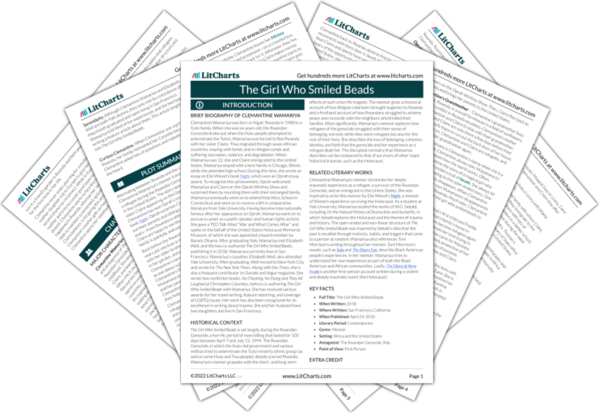AI ToolsNew
Tools to make learning and teaching easier
|
Previous
Chapter 2
|
The Girl Who Smiled Beads: Chapter 3 Summary & Analysis |
Next
Chapter 4
|


Upgrade to unlock the analysis and theme tracking for all of The Girl Who Smiled BeadsThe Girl Who Smiled Beads!
Get LitCharts A+